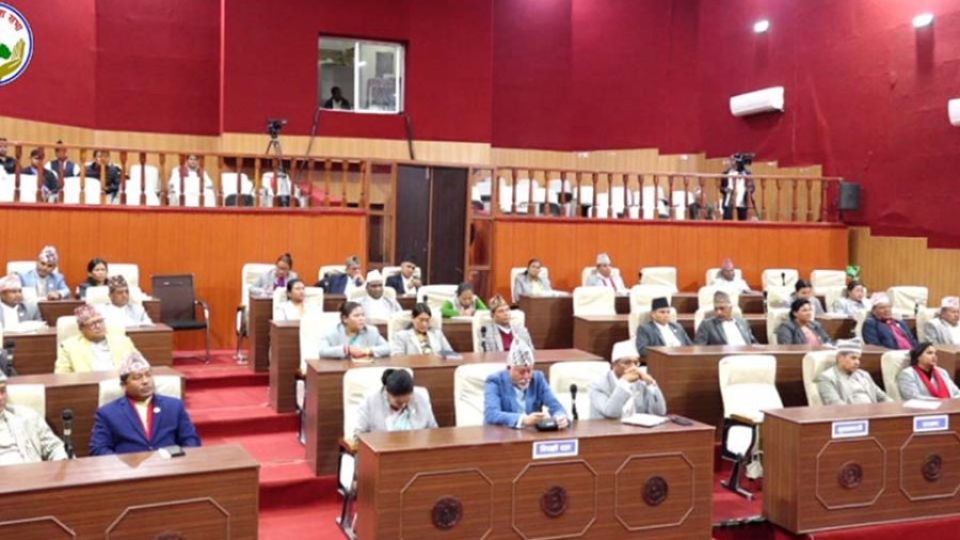December 10, 2024
KATHMANDU – Provincial assembly parliamentary committees are pivotal to strengthening federalism in Nepal. These committees work to hold provincial governments accountable. Even when the assembly is not in session, the committees can continue working. As the provincial assemblies cannot manage all the tasks, these committees, with various thematic jurisdiction and expertise, work by often rising above partisan interest to save the parliament’s time; they simplify work and conduct various studies. Article 193 of the Constitution of Nepal specifies that “the State Assembly may, as per its rules, form committees or special committees, as required, to manage its working procedures”. Thus, the number of thematic areas varies in each province.
However, the functioning of these committees is undermined in several provinces. In Karnali, three of the four parliamentary committees—the Finance and Natural Resources Committee, the Public Accounts Committee and the Social Development Committee—are currently without heads. While the first committee has had no chief since April this year, the latter two have been vacant for three months. The prolonged leadership vacuum in important committees is also something that is routinely seen in other provinces. The five committees in Bagmati were at a standstill without chairpersons for more than a year since the first session of the start of the second term of the Bagmati Provincial Assembly in January 2023. The parliamentary committees in Lumbini and Sudurpaschim have been without their chairs after the formation of their respective assemblies last year.
The absence of chiefs of these key provincial assembly parliamentary committees makes it difficult to hold the provincial governments accountable. These governments fail on governance, budget implementation and role assignment to the provincial assemblies. Passage of essential bills is also hampered. Four critical bills are stuck in various committees in Karnali. Meetings to facilitate dialogue between assembly members and ministers are yet to be convened. Moreover, the provincial government, taking advantage of the committee’s ineffectiveness and lack of monitoring, has been working arbitrarily, bypassing essential checks and balances.
This in turn has added to the woes of Karnali, a geographically remote and severely underdeveloped region in western Nepal. The inactivity of the Social Development Committee is particularly concerning in a province where basic social indicators, such as health and literacy, lag far behind the national average. As the committee also deals with ministries of land management, agriculture and cooperatives, labour and social justice and human rights commission, works related to these areas are also affected. Despite the province’s rich natural resources, their potential remains untapped. Lack of development activities, particularly road-related infrastructure, has affected the province’s tourism prospects. The inactivity of the Finance and Natural Resources Committee is, therefore, troubling. More worryingly, another leaderless committee—Public Accounts—which oversees the financial discipline of the province, could fail to monitor corruption activities.
Provincial governments were envisioned as significant drivers of localised development and accountability, but they have often become battlegrounds for political manoeuvring. Because of this, appointments for the leadership positions in these committees, as has happened in Bagmati in the past, have been deliberately delayed by the political parties. Even though Karnali’s assembly regulations allow the eldest member of the assembly committee to act as an interim chief, this provision has not been invoked. The political parties would do well to appoint the chairs immediately to stop the erosion of public trust in provincial governments—unless that is precisely their intent.


